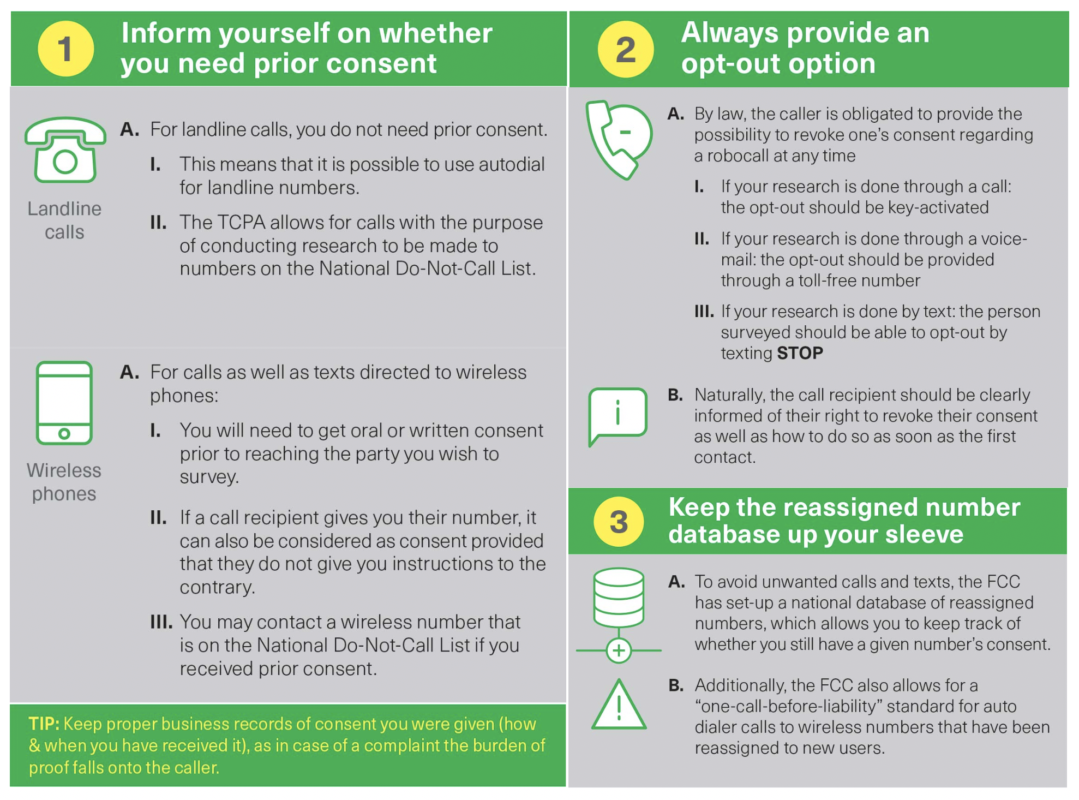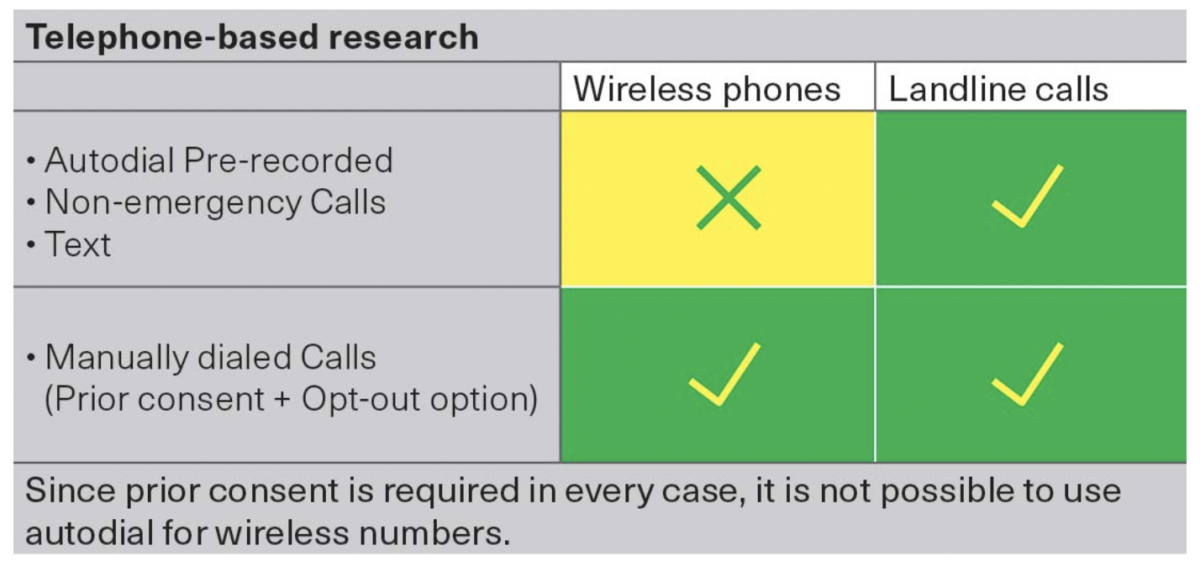The Telephone Consumer Protection Act (TCPA) was passed under the Bush administration in 1991 to restrict telemarketing calls which use automatic telephone dialing systems (also known as autodials), artificial or pre-recorded voice messages (often referred to as robocalls), and unsolicited faxes. Following a 2016 update on the TCPA’s application by the Federal Communications Commission (FCC), participation in a research dialed to a phone was declared to fall within the scope of the TCPA.
The Act was recently brought to light again as the Third Circuit Court of Appeal ruled that a request for a service’s feedback could not be presumed to be advertising or marketing, to the relief of the Market, Social and Opinion Research industry.
A particularity of the Act is that it applies differently to landlines and wireless numbers, the latter being more strictly regulated than the former. Considering that as of June 2015, more than 45% of the adult population of the US could only be reached by cell phone, having a clear understanding of how the TCPA applies to survey-making is crucial in conducting ethical and responsible research.
What’s an automatic telephone dialing system?
Automatic telephone dialing system (ATDS): an equipment that has the capacity to store or produce telephone numbers to be called, using a random or sequential number generator and to dial such numbers. Although they do not fit this definition, according to the FCC this does include predictive dialers (= dialers which can initiate calls from a list of numbers based on technology that “predicts” the likely availability of a call center operator to handle the call if answered). The FCC has broadened the definition of an ATDS to include almost any dialing equipment short of a rotary phone, including most text-dialing platforms and devices.
The three steps to conducting TCPA-complying research:
The TCPA, along with its numerous clarifications provided by the Federal Communication Commission (FCC) may be a bit difficult to navigate at first for someone wanting to inform themselves on how to conduct a telephone-based research.
Some clarification was brought when the FCC specifically
rejected “arguments that the TCPA’s protections are limited to telemarketing
calls to wireless numbers,” even though that was the original target and
purpose of the 1991 law. The FCC’s rules therefore do not exempt or exclude
research calls as the TCPA’s restrictions apply to all calls regardless of
content and purpose, save for rules regarding the National Do-Not-Call List
(see below).

Implications for Market, Social, and Opinion Research

Market, social and opinion research directly is affected by these rules. All autodialed or pre-recorded non-emergency calls to wireless phones are prohibited without prior expressed consent, regardless of the call’s content. Given the rising number of US citizens who only have a mobile phone, this might lead to significant issues of sampling. It is very important to note that these rules apply regardless of the original caller’s country.
You can download this guide as a PDF file here.


